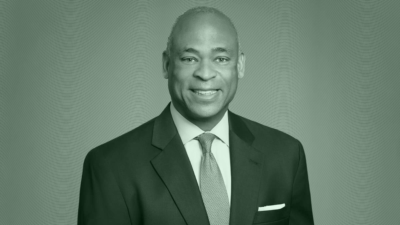Why Big Brokerages Like UBS, Goldman and JPMorgan Are Ditching Their Robo-Advisors
A fundamental challenge for robo-advisors, at big brokerages and independent shops alike, has been the razor-thin margins.

Sign up for market insights, wealth management practice essentials and industry updates.
Oh, how the mighty robo-advisors are falling.
UBS became the latest major brokerage to unplug its robo-advice strategy last week, joining a venerable who’s who of top brokerages, including Goldman Sachs and JPMorgan, that have abandoned their automated services in recent months. While the low-cost investing options exploded in popularity over the past decade, the costs of running robo-advisors — coupled with extremely low fees and minimums — have proven too steep. UBS declined to comment on the news, which was first reported by Barron’s, but its platform listed a fee of just 75 basis points and a minimum of $10,000 on its website.
“The big banks are finding it’s harder than they realized to drive meaningful profits with low fees and margins,” said industry analyst Vijay Raghavan. “The appeal just isn’t there at firms who are known for serving wealthy and ultra-wealthy clients.”
Domo Arigato, Mr. Roboto
A fundamental challenge for robos, at big brokerages and independent shops alike, has been the razor-thin margins. Onboarding new clients can cost hundreds or thousands of dollars, meaning it takes years in some cases for those firms to recoup expenses. The accounts are also almost by definition “low engagement,” which makes it more difficult for firms to cross-sell clients into more lucrative products, Raghavan said. It’s become a major problem for Wall Street banks and asset managers:
- JPMorgan Chase shut down its automated investing platform called Automated Investing last year; while Goldman offloaded digital accounts from its Marcus Invest to Betterment.
- Betterment also purchased digital accounts from Ellevest in February, following the departure of Wall Street veteran and founder Sallie Krawcheck.
- BlackRock sold FutureAdvisor to Ritholtz Wealth in 2023.
“Robo-advisors generally appeal to younger, digitally savvy customers who are more likely to seek out digital-first platforms, like Betterment or Robinhood, over an incumbent bank like UBS,” Raghavan said.
Machine or Mannequin? Automated advice’s future, at least at the big banks, may lie in striking the right balance between cost-saving tech and sentient human beings, said Will Trout, Datos Insights’ director of securities and investments. Technology can certainly help with accessibility and improve efficiency, but human expertise will remain necessary for complex decision-making and to help build lasting relationships with clients.
“This industry-wide retreat points to a sobering reality: The robo revolution failed to deliver on its promise,” Trout told Advisor Upside. “It’s an acknowledgement that financial wellbeing ultimately requires both human and digital-advice elements.”











